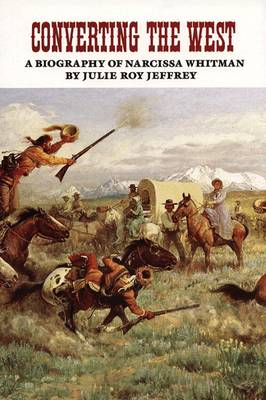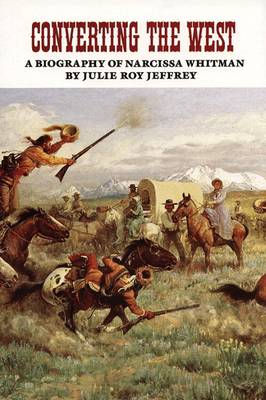
- Retrait gratuit dans votre magasin Club
- 7.000.000 titres dans notre catalogue
- Payer en toute sécurité
- Toujours un magasin près de chez vous
- Retrait gratuit dans votre magasin Club
- 7.000.0000 titres dans notre catalogue
- Payer en toute sécurité
- Toujours un magasin près de chez vous
Description
Narcissa Whitman and her husband, Marcus, were pioneer missionaries to the Cayuse Indians in Oregon Territory. Narcissa grew up in western New York State, her values and attitudes carefully shaped by her mother. Very much a child of the Second Great Awakening, she eagerly embraced the burgeoning evangelical missionary movement. Following her marriage to Marcus Whitman, she spent most of 1836 traveling overland with him to Oregon. Narcissa enthusiastically began service as a missionary there, hoping to see many "benighted" Indians adopt her message of salvation through Christ. But not one Indian ever did. Cultural barriers that Narcissa never grasped effectively kept her at arm's length from the Cayuse. Gradually abandoning her efforts with the Indians, Narcissa developed a more satisfying ministry. She taught and counseled whites on the mission compound, much as she had done in her own church circles in New York. Meanwhile, the growing number of eastern emigrants streaming into the territory posed an increasing threat to the Indians. The Cayuse ultimately took murderous action against the Whitmans, the most visible whites, thus ending dramatically Narcissa's eleven-year effort to be a faithful Christian missionary as well as a devoted wife and loving mother. In this moving biography, Julie Roy Jeffrey brings the controversial Narcissa Whitman to life, revealing not only white assumptions and imperatives but the perspective of the Cayuse tribe as well. Jeffrey draws on a rich assortment of primary and secondary materials, blending narration and interpretation in her account. She clearly traces the motivations and relationships, the opportunities and constraints that structured Narcissa Whitman's life as a nineteenth-century American evangelical woman Julie Roy Jeffrey is Elizabeth Connelly Todd Professor History in Goucher College. She is the author of Education for Children of the Poor: The Elementary Education Act of 1965 and Frontier Women: The Trans-Mississippi West, 1840-1880 and coauthor of The American People: Creating a Nation and a Society.
Spécifications
Parties prenantes
- Auteur(s) :
- Editeur:
Contenu
- Nombre de pages :
- 256
- Langue:
- Anglais
- Collection :
- Tome:
- n° 3
Caractéristiques
- EAN:
- 9780806126234
- Date de parution :
- 15-10-91
- Format:
- Livre broché
- Format numérique:
- Trade paperback (VS)
- Dimensions :
- 129 mm x 209 mm
- Poids :
- 308 g

Les avis
Nous publions uniquement les avis qui respectent les conditions requises. Consultez nos conditions pour les avis.






